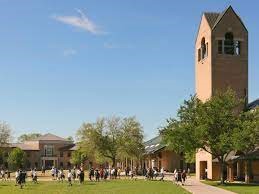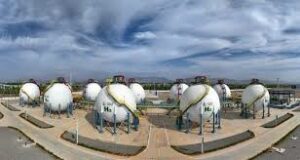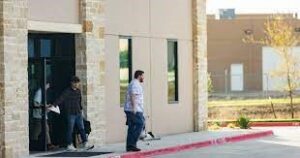
Here’s a quick recap of what happened over the last week:
Special Session Update

Gov. Abbott continues to make his personal push for school vouchers, even though an agreement among House members on the legislation continues to be elusive. Abbott appeared at a parent empowerment rally on Monday at the Capitol, and once again called on lawmakers to pass a voucher bill that would make state funds available to allow parents to pay for private school tuition. Last week, the Texas Senate passed a $500 million program that gives up to $8,000 in public funding annually to parents choosing to send their children to private schools. Opponents fear voucher proposals will drain resources from public schools, and cite very few private school options in rural areas. Proponents feel parents should have a choice on where to send their children to school, and cite political indoctrination by some school faculty as a reason for wanting a choice.
With the bill having passed the Senate, the only step remaining is passage by the House. The House rejected all voucher related proposals during the regular session through a coalition of House Democrats and rural Republicans. Abbott claims negotiations in the House are progressing and that he is confident the House will gather support for passage of a bill. However, late Thursday, the House Public Education Committee Chairman Brad Buckley (R, Killeen) filed House Bill 1, which addresses the school choice issue and increased funding for public schools. The bill also contains a pay raise for public school teachers. School finance and teacher pay raises are not part of the call of the special session, and Abbott has said he will not expand the call until both Houses agree upon and pass school choice legislation. Upon filing of the omnibus 184-page House Bill 1, Rep. Buckley said the House has no intention of holding a hearing on the legislation until the Governor opens the call to include increased funding for public schools and a pay raise for Texas teachers. The Senate passed both a school choice bill and a school funding bill that included a pay raise for teachers, but the Senate separated the school choice bill as stand-alone legislation. Since the House included all provisions in one bill, the call of the session would have to be expanded for the bill to be considered. So, at this time, there is a stalemate between the House and the Governor regarding movement on school choice legislation.
Furthermore, there are substantial differences between the House and Senate versions of school choice legislation. The Senate version – as discussed above — lets parents access up to $8,000 per student to apply towards private school tuition and expenses. The House version only allows for parents to access 75% of the basic allotment which would equate to roughly $6,100 per student. Furthermore, the House version limits who is able to access the funds to 25,000 students per year, and gives priority to students with disabilities and low-income families. The Senate is unlikely to agree to these restrictions on a school choice program. Gov. Abbott has not given any specifics on what he would like to see specifically, only that he is in favor of school vouchers. Therefore, House and Senate negotiators have no standard or set of parameters for the legislation that would ensure final approval from the Governor.
Another contentious issue under consideration during this special session is the banning of COVID vaccine mandates by employers. SB 7 was passed last week by the Senate and bars any employer from adopting or enforcing any policy that requires employees to be vaccinated against COVID. The bill – passing along party lines – also allows employees to file complaints against employers that require the vaccination. The health care community and most business groups oppose the government intervention into business operations while proponents of the bill cite the need for freedom over personal health care decisions. The House State Affairs Committee held a hearing on the bill this week, and the committee was again divided along partisan lines during their discussions on the bill. No agreement has been reached, but the bill’s House sponsor – Republican Rep. Jeff Leach of Plano – said he is involved in continuous discussions with the Senate and Governor’s office to try and reach an acceptable product for House consideration.
There are some issues that are actually moving this special session. The House State Affairs committee met yesterday afternoon and approved House Bill 4 for consideration by the full House. HB 4 would create a misdemeanor offense for illegal entry into the US from a foreign country. The bill would authorize state peace officers – in lieu of an arrest – to remove a person detained for the offense of illegal entry by transporting the person to a point of entry and ordering them to return to their country of origin. Refusal to comply with this order is a 2nd degree felony under this legislation.
The House Calendars Committee has scheduled a meeting for Tuesday morning and the expectation is that this bill – along with the border wall funding bill discussed below – will be set for House floor consideration on Wednesday of next week.
Border News

In addition to the barriers the state has placed along the border with Mexico, Texas is expanding border security with new fencing along its border with the state of New Mexico. Texas National Guard members have begun installing razor wire along the Rio Grande River north of El Paso near Sunland Park, NM. Sunland has seen a significant increase in migrant activity recently and Gov. Abbott credits the efforts by Texas to deter migrants with the reason for the alternative route. On twitter, Abbott claims that migrants are now “entering El Paso from New Mexico and we are now building a barrier on the New Mexico border.” El Paso continues to grapple with the ongoing migrant crisis, with the city having to maintain numerous shelters to provide basic needs for those that have passed into the city and have been released by Customs and Border Patrol. However, the numbers have slowed recently, but still remain high. After reaching a daily total of over 2,000 daily apprehensions in late September, numbers are now averaging in the 600 range over the last few days.
The city maintains a daily count on its website of daily encounters and releases by CBP, a link can be found here: https://www.elpasotexas.gov/migrant-crisis/
The special session could also see the legislature appropriate another $1.5 billion to continue building the border wall. This would double the amount that has been appropriated specifically for construction of the wall. Legislation has been filed and will be heard on Monday in the House Appropriations Committee that authorizes the additional $1.5 billion for construction, operation, and maintenance of “barrier infrastructure.” This is part of the continuing effort by lawmakers to fund all types of border security measures. Over the last two years, the legislature has appropriated roughly $4.5 billion for measures related to border security. That is in addition to the $5 billion that was approved during the regular session for the upcoming biennium. If the latest proposal is approved, that will bring the border security funding to just over $11 billion through 2025. So far, the state has erected 11 miles of wall since the legislature gave approval for funds two years ago. Costs run an estimated $20 million per mile of construction. The Texas border with Mexico stretches for 1,254 miles.
Federal Reserve Study on Extreme Heat

The Federal Reserve of Dallas released a report this week declaring the extreme heat cost the Texas economy $24 billion this summer. Economists with the Fed detailed how hotter summers reduce business activity. The higher the temperature, the more negative the impact on the economy. The report was a product of a survey the Fed sent to businesses around the state who reported lower revenue and/or production due to the heat, citing lower demand for products and reduced labor activity. The state’s hospitality and retails sectors were hit the hardest. The study concluded – no surprise to those of us who lived through the brutal heat this summer – that people stay home more during a sustained heatwave, and they tend to vacation in cooler climates, thus causing the decreased economic activity in the state. The Fed concludes its study with recommendations for businesses and communities to adapt to the summer weather by adding new technology to become more sustainable and improve energy efficiency. A link to the full study can be found here: https://www.dallasfed.org/research/swe/2023/swe2309
Hydrogen Hub for Houston

The federal Department of Energy has announced that Houston will be one of seven Regional Clean Hydrogen Hubs (H2Hubs) across the nation that will develop a commercial market for the sale of low-cost hydrogen as an energy source that will be very economical and be produced with near zero carbon emissions. Houston based HyVelocity will be the center of the gulf coast hub and receive nearly $1.2 billion for clean hydrogen production. Members of the hub include the University of Texas, research and development non-profit Houston’s Future, along with major oil and gas production and supply companies. The hub will produce hydrogen from natural gas using carbon capture to mitigate emissions. The Houston/gulf coast hub will be the largest of the seven named by the Biden administration and has the potential to create up to 10,000 permanent jobs and another 35,000 construction jobs over the next 10 years.
Conservative PAC Changes Leadership

The Defend Texas Liberty PAC has made headlines over the last several weeks for their continued support of AG Ken Paxton, along with threats of retribution against House members who voted to impeach the embattled Attorney General. Most recently, the PAC’s President – former Rep. Jonathan Stickland — also made headlines when he met with Nick Fuentes, a known white supremacist and self-identified admirer of Adolf Hitler. The meeting set off a firestorm of condemnation and came at the time when the war in the middle east was beginning. Demands were made to any member who had received a contribution from the PAC to return or redirect the money. The PAC has finally relented and replaced Stickland as President. The PAC now lists Luke Macias as the new President. Macias is a Texas based political consultant who has worked for only the most conservative members and candidates, and contributes regularly to conservative political publications.
Political Notes
President Trump continues his substantial lead over all Republican rivals in both money raised and polling. Trump reported raising $24.5 million in the 3rd quarter of 2023, which is double of any figure reported by any of the other contenders. Trump also has a significant lead in cash on hand, boasting nearly $38 million, compared to the $12 million reported by Florida Gov. Ron DeSantis, who has consistently polled 2nd behind Trump. Nikki Haley reports slightly more than $11 million cash on hand. Trump also continues to hold at least a 45-point lead in all major polls over his nearest competitor.
Congressman Colin Allred now has a 20-1 lead over his nearest rival among the other Democrat contenders for the nomination to directly challenge US Senator Ted Cruz in 2024. Allred has reported raising $4.7 million in the 3rd quarter of this year compared to $631,000 raised by state Senator Roland Gutierrez on San Antonio. In addition to his Democratic rivals, Allred is also outraising Cruz. Allred has raised nearly $11 million since launching his campaign in May, compared to $8.8 million raised by Cruz since May. Allred is reporting $7.9 million cash on hand compared to $5.7 million for Senator Cruz.
In the race to succeed Allred in Congress, third term state Rep. Julie Johnson of Farmers Branch and trauma surgeon Brian Williams of Dallas are running ahead of the crowded field in the Democratic primary. Each of those candidates raised slightly more than $300,000 in the 3rd quarter of 2023. These totals put them well ahead of their primary rivals. The solidly Democratic district has attracted six candidates for the primary, included Johnson’s House colleague, Rep. Rhetta Bowers of Garland. Bowers has not broken the six-figure mark in donations.
Powerful House Calendars Committee Chairman Rep. Dustin Burrows of Lubbock will face opposition in next year’s Republican primary. Wade Cowan, a farmer from Brownfield, has jumped into the race and is continuing the theme of many Republican House primary races that cite the incumbent’s support of Texas House Speaker Dade Phelan and his vote to impeach AG Ken Paxton. In his press release announcing his candidacy, Cowan said Burrows “has become a hinderance to our conservative way of life…and only serves the interest of the political elites.” Burrows was first elected in 2014 and through his chairmanship of the Calendars Committee, controls the flow of legislation on the House floor.
Denton Republican Rep. Lynn Stucky has drawn a second opponent in next year’s Republican primary. Stucky – serving his 3rd term – is already involved in a rematch against Andy Hopper of Decatur who lost to Stucky in 2022 by only 94 votes. Elaine Hays of Runaway Bay in Wise County announced this week she is also joining the race. Hays served two terms on the Amarillo City Council. Hays will be using her vacation home in Wise County as the home address for her run for this seat. House District 64 is based in Denton County.
In neighboring House District 65, also in Denton County, first term Republican Rep. Kronda Thimesch of Lewisville has also drawn a primary opponent. Mitch Little – one of the attorneys on the Paxton defense during the impeachment trial – has filed to run against Thimesch in next year’s Republican primary. Thimesch was one of 60 Republicans in the House who voted to impeach Paxton. Little is a partner at Scheef & Stone law firm based in Frisco and has represented Paxton on several other legal matters. The district is solidly Republican and covers suburban areas north of Dallas and Fort Worth.
A federal district judge has ruled that Galveston County violated the Voting Rights Act when it drew districts for its commissioners court in 2021. In his ruling, the judge – appointed by President Trump – said the new lines “deny Black and Latino voters equal opportunity to participate in the process to elect a representative to the commissioners court.” In the trial conducted earlier this summer, evidence was provided that Black and Latino communities were split so white voters could make up at least 62% of the electorate in each of the four precincts. Commissioners must now redraw districts by next month for the November, 2024 election. This is significant because this is the first county level redistricting case since the 2020 census that drew intervention from the federal government regarding the Voting Rights Act.
Former First Lady and Secretary of State Hillary Clinton has endorsed Congresswoman Sheila Jackson Lee in the race for mayor of Houston. The endorsement came in a twitter post earlier this week. Jackson Lee has a history of supporting the Clinton family as well. In 2008, she endorsed Hillary Clinton’s bid for the Democratic nomination for President over Barack Obama. Clinton joins former House Speaker Nancy Pelosi and former gubernatorial candidate Beto O’Rourke on the list of prominent Democrats that have endorsed Jackson Lee. The Congresswoman and state Senator John Whitmire continue to lead in the polls in the run up to election day.
What’s Next??
Both the House and Senate met very briefly on Thursday but did not conduct any business. The House is adjourned until 4PM on Monday. The House Calendars Committee is scheduled to meet Tuesday morning, setting a floor calendar for Wednesday.
The Senate is recessed until 2PM on Monday.
Monday is the halfway point of the 30-day special session.
